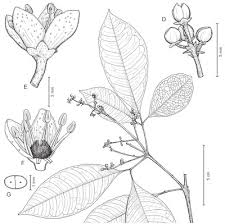A new tree species whose specimens were collected close to 70 years ago from the Bamenda Highlands by a member of the Nigeria Forestry Service has been identified as Vepris bali and declared extinct.

According to a paper published last August 2018 in the Willdenowia Journal, the species was formally identified and declared either critically endangered, or extinct by a group of researchers from the Royal Botanical Gardens-U.K, and the University of Yaounde I in Cameroon. These researchers noted that repeated efforts between 2000 and 2004 and at least six other studies, failed to provide evidence that the tree species, Vepris bali, still exists. They have attributed the extinction of this tree species, whose only known habitat has been the Bali Ngemba Forest Reserve, to deforestation and agricultural incursions.
Though declared extinct, these researchers hope the species could be rediscovered as they rediscovered another species, Ternstroemia cameroonensis, in 2011 earlier declared extinct.
While carrying out studies within the Bali Ngemba Forest Reserve, the researchers noted several threats with the conversion of forest to agricultural lands by local communities at the higher altitudinal range is paramount. They implored local authorities and communities to shun deforestation so the forest “could recover and continue to have a national and global role in the conservation of species and natural habitat, even if some species may already have become globally extinct”.
The Bali Ngemba Forest Reserve, which has hitherto played host to this newly extinct species, covers 8 km2 and with an altitude of 1300–2200 meters. It is the only formally protected and the largest surviving area of submontane forest in the Bamenda Highlands, an area that has been deprived of its natural vegetation that it is now called “the grasslands”.
B. Shancho Ndimuh







